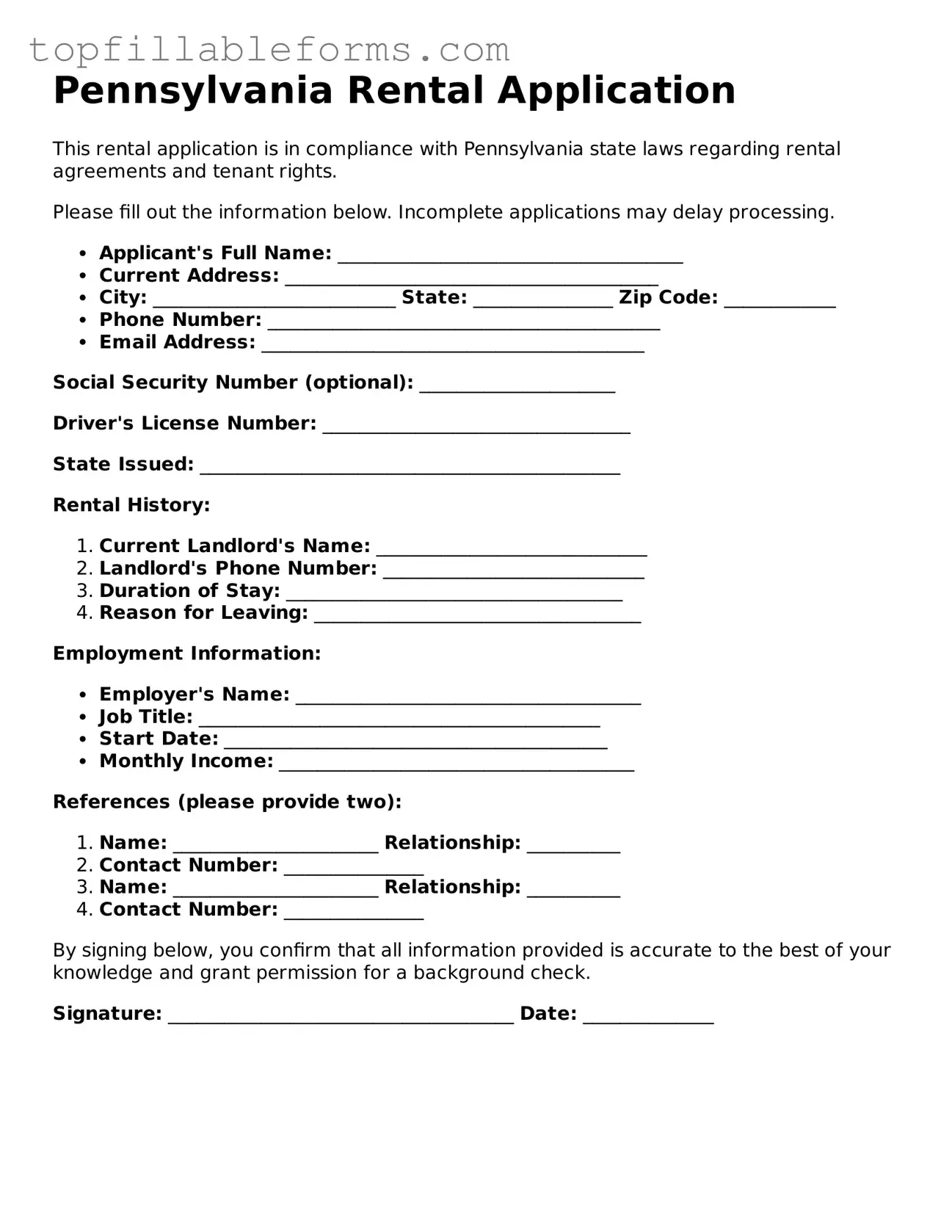Attorney-Verified Rental Application Template for Pennsylvania
The Pennsylvania Rental Application form is a crucial document that prospective tenants complete to express their interest in renting a property. This form not only provides landlords with essential information about applicants but also helps ensure a fair and transparent rental process. Understanding its components can empower both tenants and landlords in their rental journey.
Open Rental Application Editor Here

Attorney-Verified Rental Application Template for Pennsylvania
Open Rental Application Editor Here
Finish the form now and be done
Finish your Rental Application online by editing, saving, and downloading fast.
Open Rental Application Editor Here
or
▼ PDF File
